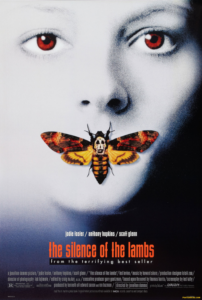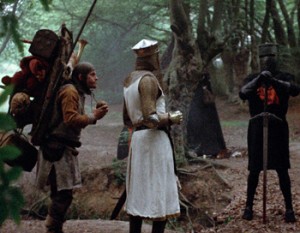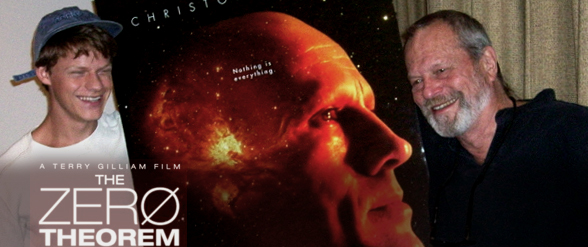Terry Brooks is a fantasy fiction writer and has had 23 New York Times bestsellers and over 21 million copies of his books in print. He is known best for his book “Magic Kingdom for Sale…Sold!” in his “Magic Kingdom of Landover”, which is a six book series. His other well known series for the “Shannara” series, which currently is a 24 book series with 3 more on the way. Terry’s latest book in the “Legends of Shannara” series is called “The Measure of the Magic”, which was released August 2011. Media Mikes had a chance to chat with Terry about his books, his movie adapation plans and his process for writing.
Mike Gencarell: Let’s start with the “Measure of Magic”, which just came out. Tell us about how you came up with the idea for the second book in that series?
Terry Brooks: Well it wasn’t too difficult. I write in groups of books anyway. They’re all historical sagas so they take place in different time periods. I’m in the midst now of working on a set of what will be probably 9 or 10 books on the pre-history of the Shadow World. So when you sit down to start a project, you sort of plot out what the story is gonna be and as you work on it it tells you before you even get started on your writing, for the most part, how many books it’s gonna be. So, I’ve actually known that this was gonna be a two book set for about three years. It helps if you think ahead on these things, otherwise you spend a lot of time trying to play catch-up.
MG: So you mentioned that you have the next chapter for the trilogy coming up. Can you tell us a little bit about that?
TB: Anybody coming in to this series will take one look at this thing and say “Wait a minute, this guy has 18 books that take place in 15 different time periods, and he is still writing? What the heck! I won’t live that long.” And it is confusing, and part of what I do to make it easy is to list all the books on the front and put them in chronological order and also put them in groups. So every new reader can say “Well I can start with book number one of any set.” And it wouldn’t be a problem. It doesn’t matter if you read all the stuff that went before or all the stuff that is gonna come after, you just want to not be reading in the middle of a set. So with that said, I have been writing with “Bears in the Black Staff” last year and now “Measure in the Magic”. In that two book set I’ve been writing in the pre-history of Shadow Realm which takes place long before Sword, which was the seminal book because it was the first one published. Now with “Legacy”, I am writing in the future of that world, many hundreds of years in the future, and I am working on a three book set that basically plays off of the work that I did in about six books before that. Although they are not directly connected, they work off of that history and it’s going to run for a three book set. I’m going to publish in 2012 and 2013.
MG: What would you say would be the most difficult part of writing “Measure of Magic”? Anything that stands out?
TB: You know, I will tell you…I have been around long enough that I mercifully forget most of what is difficult from one book and the next. All I can tell you is that there is two things that happen with every book. There is a period in there where you come up against something you weren’t expecting and you have to thrash your way through it. It doesn’t matter how much you plan…doesn’t matter how much time you put into it ahead. Somewhere along the line you will come up against a wall and you’re going to have to figure out what you are going to do about it and how you are going to get through it. The other thing that happens at some point, maybe half way to three quarters through the book, I become convinced that I have written the biggest piece of crap in all humanity. I’m just sure of it! I look at it and I think “This is not only no good, it is beyond being bad. No one is going to buy this, this is the end of my career right now!” So I go out and I settle down after a couple days and things get back to normal. But it never fails, at some point I’ve just decided “I took a wrong turn, this is not working out, I don’t like it” You know, one of those. You know I am trying to think about what it is about “Measure” that was difficult in particular…and I can’t. The problem is that I am publishing the book today that I wrote two years ago, and I’ve already written two new books since then so I am thinking about the books where I am today, so answering questions about the specifics of this book requires a lot of brain activity and I don’t have much to offer [laughs].
MG: That is funny, because us talking about the books is like the time line in the books, how they span across different time lines.
TB: I am always amazed when I get these kids, 13 or 14 year old kids, sometimes younger, and they say “You know, I’ve read all your books!” Well you know, everybody says that, so I said “Oh, ok.” And they insist they have. So then I ask them a couple questions, and they have everything memorized. They will proceed to tell me this thing in book four on page 300 I wrote this thing. I’ve learned not to argue with it because they are always right and I am never right [laughs]. I’ve decided that is the future and to just let it go.
MG: One of my favorites is “Magic Kingdom for Sale: Sold!”. Do you ever see that being made into a feature film at all?
TB: God did someone pay you to ask me that question? I mean jeeze, this is great! I’ve had that particular series of books under option on and off over the past 20 years and it has just gone under option again. I can’t talk about the specifics of it because it is right at the crucial final few points of negotiation and contracts, so I have to wait for that first. But what I can tell you is that it will be options by a major motion picture studio and production company and that they are saying they want to do a series of movies based on that whole series. I’ve talked to people from both the production company and movie studio and they seem to be real fans of the books. So I am trying to get used to the idea that everyone in Hollywood grew up reading my books, which is hard for me to accept because I don’t like the idea that everyone is so much younger than I am but they seem to be committed to it. So we’ll see and that would be great. I have always figured that “Magic Kingdom” would be made into a movie because it’s the easiest book I’ve written to get made into a movie. I think with all the stuff with “Harry Potter” and “Lord of the Rings” using CGI that it is much easier these days to figure out how to do special effects than it was, say 10 or 15 years ago.
MG: Do you think once they make “Magic Kingdom” into a movie that you will write a sequel to “Princess”?
TB: Oh yeah. I will probably write the sequel anyway at some point but I would like to hold off until they actually get the point where they are doing the movie to help push the book. I also have so many projects on the board that “Magic Kingdom” at the moment isn’t the most pressing one.
MG: Who, or what, inspired the design for the main characters in “Magic Kingdom for Sale: Sold!”? Is there anything specific?
TB: I don’t normally base characters on real people, they are usually combinations of different people I know or different characteristics, that sort of thing. “Magic Kingdom” is different though because it is very autobiographical in a way. That whole series is about my transition from being a lawyer to being a writer. If you can read between the lines you will see what some of that is about. I based the main character, Ben Holiday, on myself. He is very much like myself, except the part about boxing because I don’t box. Abernathy, the dog who is a character that was a man that was turned into a dog by the wizard by a mistake, that dog was my dog. That dog used to come in there every day while I was working and it would lay there on the floor and nap while I was working and I thought “You know, this dog is worthless, there must be some way to get something out of this dog.” So finally I decided I would have a character based on this dog, that was also a soft coated wheaten terrier. I figured that way maybe I could make some money off of him anyway.
MG: So who do you think you identify with, out of all of your characters, the most?
TB: Well you can certainly say I am closer to Ben Holiday than any other characters, but I think when you are a writer, there is some part of yourself in all of your characters. You have to understand how they think and how they work. Even the really bad ones. You have to have some sense of what they are all about, so there is some piece of you in all the characters to a certain extent. I guess Holiday is the one who’s pretty much closest to who I am.
MG: Other then “Magic Kingdom”, do you have any plans to get any of your other books made into films?
TB: “Shannara” has been under option too, on and off over the past 20 years, and it was an option up until about a year ago. It is back out there. There is still interest, there are people that still talk about it. The big thing is that because I’ve been around so long and because I’m getting old and mean [laughs], I’m not going to give anybody anything unless I am happy with what I am hearing. If the studios come around and show interest I will ask them to tell me something different…tell me something good about what they will do. If I like what I hear I will be more interested in thinking about making a movie. A long time ago I said “What’s going to happen to me is exactly what happened to Tolkien; It’s going to get jacked around and 30 years after I’m dead it’s going to get made.” Then my kids will benefit and I won’t be there but that’s the way it goes.
MG: So who or what are you currently reading now? Are there any favorite artists or inspiration?
TB: Oh yeah, I read all the time. That’s pretty much all I do. I’m kind of a boring person. My sister is a writer too, I am reading her latest book right now what she is presenting to a division of Random House. At the moment I’m reading Lev Grossman, “The Magicians” sequel. I’m going to read “The Last Werewolf.” My publisher keeps me well supplied in a lot of books that are new because everyone wants a quote. So I get to read a lot of science fiction-fantasy that comes from all over the place that is new. I like to read new writers and see what is new that is out there, and what is interesting. I read a lot of mysteries, contemporary fiction and a lot of history.
MG: Do you find that your writing process has changed?
TB: Oh yeah, it changes. I always thought it would not change when I started out, I don’t know why I thought that. I figured I would keep working the same way. But when you get older it changes. I used to work night and now I work from 6am in the morning until noon or 2pm in the afternoon. That time frame that I work is all together different. I used to work every day, I don’t do that anymore. What used to take twice as long I can do in half the time now, and that’s just because I’m more experienced. You write 35 books and you learn something. That’s one of the good things about it because I’ve become more comfortable with it. I don’t spend a lot of time agonizing over stuff like I did in the past because and I don’t have to since I know what the process is. The main thing that you have to do is stay hungry, and it’s hard after 35 books in 35 years. I have to spend time thinking about stories that interest me and plots and themes that will interest me for a whole year if I sit down to write them so I don’t get bored halfway through. That really is the thing I have to work the hardest at these days in order that the books stay fresh and interesting and they don’t put people to sleep.
MG: Are there any projects that you scrapped because you got bored with them?
TB: The trick is if I am starting to get bored…it’s time to make a change. That’s the main rule. If I get to the point where I am working on something and that’s the way I’m feeling about it then I have to get rid of it and start over and find out where there is a better place to be. But it happens to every writer in some point in every book. You write your way into a place where it’s not very interesting and you need to get yourself out of it.
MG: Do you have any advice for any aspiring writers on how to get published or write their own novel?
TB: You know I am so far removed from that. I probably don’t have a lot of good advice on how to get published. In the old days I had lots of advice on it because I was closer to the subject matter and I knew a lot of writers getting published. What I kind of know is because the publishing landscape has changed and everything is getting published through ebook and online publishing. There are a lot of new avenues for people to get published these days. You have to kind of think outside of the box. The traditional approach still works but it’s not the only approach anymore. There have been a lot of very successful authors that have simly offered their stuff free online. They develop a following and then took all of that to a publisher and said “Look, I have 100,000 people out here who will read my stuff, how about we do a book?” The publishers are looking for that sort of thing. I guess the biggest piece of advice for people who are trying to write a book is that if you don’t love the process more than you love the money, or the idea of the money, or the idea of being famous, or the idea of whatever, then you are in the wrong business. This is a job like any other and you should really love this job. You should be really fascinated by what’s involved in doing it if you want to be successful for more than one book or in the long run. It’s the thing that’s kept me going more than anything else. It’s fun to sit there and look at the books on the shelf once in a while but mostly I don’t care. I’m mostly interested in what am I going to write next, or how am I going to make this next book work, or how am I going to make this next book better then anything I have ever done before. That is kind of what I think you need to feel that you’re going to do every time out.
MG: Do you have anything you might want to announce exclusively to us?
TB: Well I will tell you what, the first news I get about the movie, I will make an arrangement and we will have another interview and we will talk about it in more depth.
Related Content




